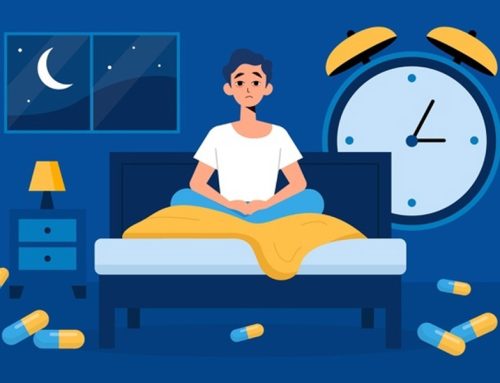Getting a good night’s sleep is essential for overall health and well-being. Unfortunately, many people struggle with sleep issues, such as difficulty falling asleep, staying asleep, or getting restful sleep. If you’re having trouble sleeping, there are a number of strategies you can try to improve your sleep quality. Here are a few suggestions:
- Establish a consistent sleep schedule: One of the most important things you can do to improve your sleep is to establish a consistent sleep schedule. Try to go to bed and wake up at the same time every day, even on weekends. This can help regulate your body’s natural sleep-wake cycle, making it easier to fall asleep and stay asleep.
- Create a sleep-friendly environment: The environment in which you sleep can have a big impact on your sleep quality. Make sure your bedroom is cool, dark, and quiet, and consider using blackout curtains or an eye mask to block out light. It can also be helpful to use a white noise machine or earplugs to block out any external noise.
- Avoid caffeine and alcohol before bedtime: Caffeine and alcohol are both stimulants that can interfere with sleep. Try to avoid consuming them, especially in the hours leading up to bedtime.
- Relax before bedtime: It can be helpful to engage in relaxation techniques, such as meditation, deep breathing, or progressive muscle relaxation, to help calm your mind and body before bed. You might also try taking a warm bath or reading a book to help you relax.
- Get regular exercise: Regular exercise can help improve sleep quality. Just be sure to finish your workout a few hours before bedtime, as exercising too close to bedtime can actually make it harder to fall asleep.
- Avoid napping during the day: Napping during the day can interfere with your natural sleep-wake cycle and make it harder to fall asleep at night. If you’re struggling to stay awake during the day, try to get some sunlight or take a short walk instead of napping.
- Consider using sleep aids: If you’re still having trouble sleeping despite trying these strategies, you may want to consider using sleep aids. These can include medications, such as sedatives or hypnotics, or natural remedies, such as melatonin or valerian root. However, it’s important to talk to your doctor before using any sleep aids, as they can have potential risks and side effects.
By implementing these strategies, you can improve your sleep quality and get the restful sleep you need to feel your best.



